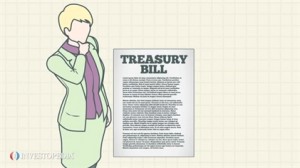So far, we have discussed about two types of derivatives namely, swaps and options.Now, i am here with a third type of derivatives called futures.In India, contracts have been classified into different categories based on their nature by Forward Contracts (Regulation) Act, 1952.Basically there are two types of contracts, one is Ready Delivery Contracts and the other is Forward Contracts.Ready Delivery Contracts provide delivery of goods/instruments and payment of a price therefor either immediately or within 11 days after the time of contract.Whereas, Forward Contracts also known as Specific Delivery Contracts facilitate spot transactions which are rendered for execution on a future but fixed date.Forward Contracts can be Non-transferable specific delivery contracts or Transferable specific delivery contracts on the basis of transferability of rights and liabilities.
Futures are transferable specific delivery forward contracts which obligate the buyer to purchase an asset such as some physical commodity or financial instrument at a preset date and price.They fix the terms of an exchange or lock the price today of an exchange, which will take place at a fixed future date.They are highly standardised contracts between sellers and buyers in which, the former is obligated to deliver, and the latter to receive the given asset or instrument in specified quantities at a fixed future date.Sellers are also called “shorts” and buyers are called “longs”.In these contracts, deferment period could be several months, usually ranging from three to 21 months abroad.
On the basis of underlying assets, future can be classified into Commodity futures and Financial futures.Financial futures consists of stock index futures, interest rates futures and currency futures.Stock index futures are traded on the basis of different share price indices rather than one on any individual share.whereas, interest rates futures are written on the basis of interest rates or price indices of fixed interest securities, such as treasury bills and bonds, industrial bonds, commercial papers, mortgages etc.
As we know that futures are transferable legal agreements and their terms can not be changed during the life of contract.So, futures should not be treated as securities.Although future contracts provide for the delivery of contracted assets, in practice only a small proportion of contracts are settled by the actual delivery.This is because the motivation underlying these contracts is not actual delivery, except in a residual sense, as they are entered mostly either for hedging or for speculation. They are paper contracts entered with a view to realize money difference. Hence future markets are also called “paper markets”. In fact they are not even paper markets because trading in them does not involve certificates. The only paper exchanged is contract notes. In case of bond or equity index futures there is no deliverable asset and the value of the contract is just some multiple of the value of the index.
Click here for government certification in Accounting, Banking & Finance





29 Comments. Leave new
Very well explained article..
thanks stephy
well done
thanks prateek!
Good job!
thanks megha!
Well elaborated.!
thanks vinita!
Nice!!!!
thanks abhi!
Good Work 😀 /
thanks ani!
Nicely explained !
thanks shikha!
Well elaborated.
thanks ria!
Well explained:)
thanks manpreet!
Explained very well.. Good work..!
thanks padma!
Well written!
thanks siddhant!
Good work! 🙂
thanks anant!
Well written boy.
nicely explained..
Well compiled, Aman!
good work !
and liked it very much 🙂
Good work